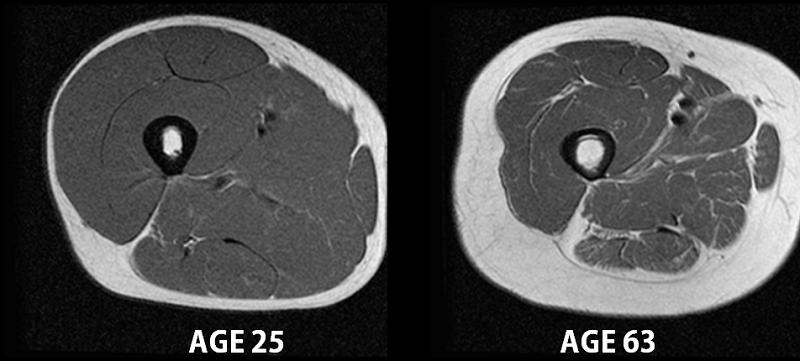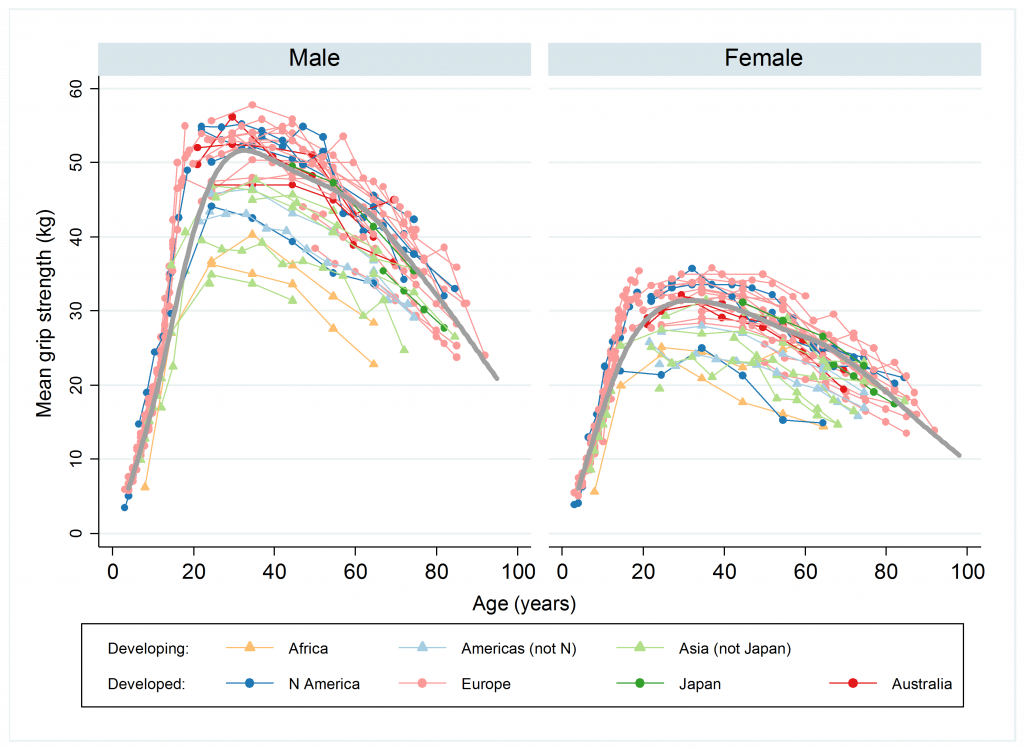Our research has described sarcopenia and frailty in older people across the globe, identifying the central role of ageing skeletal muscle in these syndromes, from molecular mechanisms through the natural history and epidemiology of the disease. This programme has specifically addressed the following areas: (1) definition and normative data in the UK and globally; (2) natural history of sarcopenia and healthcare utilisation; (3) pathophysiology of sarcopenia; (4) sarcopenia, physical frailty and bone health; (5) nutrition and wellbeing in later life: determinants and links to healthy ageing.
Extending previous work describing the natural history of changes in grip strength through the lifecourse in the UK, we performed a systematic review and meta-analysis Our findings supported the use of our British grip strength centiles and their associated cut points in consensus definitions for sarcopenia and frailty across developed regions. However, they highlight the need for different cut points in developing regions.
In mechanistic work, the Hertfordshire Sarcopenia Study (HSS) provided detailed characterisation of muscle, including measures of muscle mass, strength and function.
Previously, we reported that healthier dietary patterns, consisting of a well-balanced diet of micro- and macronutrients, are associated with better muscle health in older age. In collaboration with MRC LHA, we have importantly shown in longitudinal analyses that lifetime diet quality is associated with better muscle function at 60-64 years.


